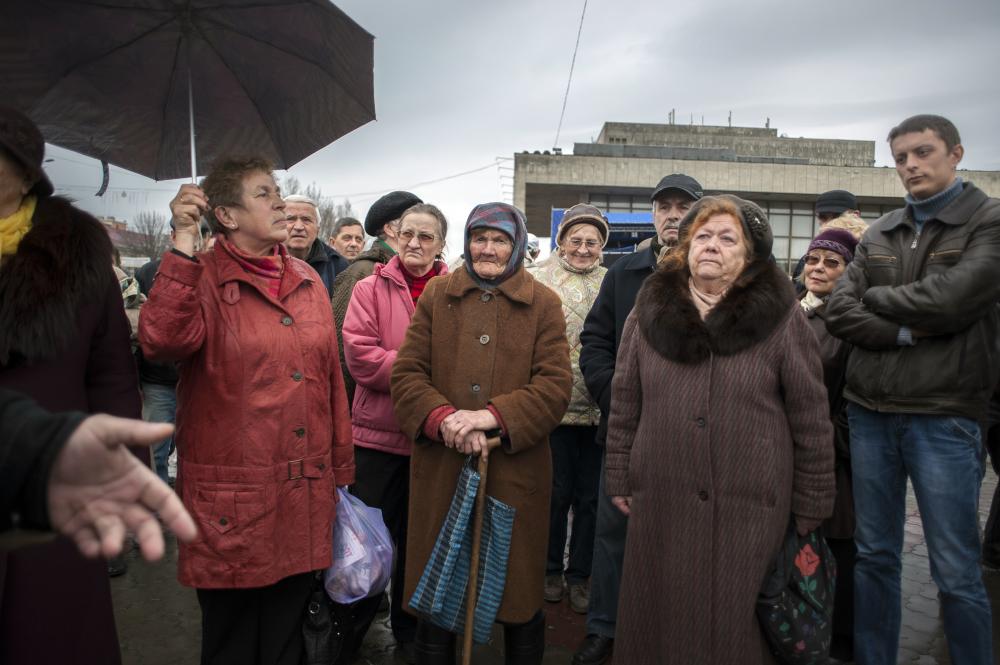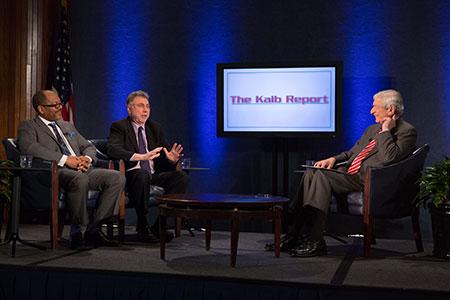
The war in Ukraine has slipped off the front pages. Eighteen months ago, when Russian President Vladimir Putin seized Crimea and then instigated a pro-Russian rebellion in the Donbas region, Ukraine was hot news. Putin was roundly denounced, and Russia was hit with damaging economic sanctions. East-West relations soured badly, and diplomats wondered whether they were witnessing the beginnings of another cold war.
Now Ukraine, as a European crisis, has lost its urgency. One reason is the rush of other news, from global economic jitters and the flood of desperate Arab and African migrants to Europe to the preoccupying nuttiness of the U.S. presidential campaign. But there is another equally important reason. Putin seems to have won his little war in Ukraine, and his Western critics watch from the sidelines, sputtering with helpless rage.
Roughly a year ago, Putin faced one of the biggest decisions of his presidency: whether to strike a compromise deal with Ukrainian President Petro Poroshenko or openly commit his troops and tanks to the war. Much to the surprise of many observers, the Ukrainian army and militias seemed a battle away from defeating Putin's rebels. Putin, facing defeat, doubled-down and ordered his forces to cross the border and turn back the Ukrainian advance. He clearly wanted to prove to Poroshenko and his Western backers that in a war between Russia and Ukraine, Russia would win.
Within a few weeks, Putin and Poroshenko reached agreement on a rickety cease-fire, which predictably did not hold. Early this year, German Chancellor Angela Merkel rushed to negotiate another cease-fire, but she knew, as did President Obama, that it depended in large part on whether Poroshenko and his Kiev colleagues would extend recognition (a form of legitimacy) to rebel leaders in Donetsk and Luhansk and grant them autonomous status within Ukraine. This was and remains a bitter pill for Poroshenko to swallow. He faces violent opposition from right-wing extremists, and he runs a fragile country in serious economic and political trouble. More important, perhaps, he knows by now that neither Germany nor the United States will fight for Ukraine. Yes, they will offer warm words of support, modest financial and military assistance, of course — but apparently little more.
In this environment of caution and retreat, Putin has, slowly but surely, "frozen" the conflict, much as he did in 2008 in the former Soviet republic of Georgia. Far more than Western leaders, Putin can now influence and, when necessary, control the flow of economic, political and diplomatic developments in Ukraine.
For this "victory," Putin has had to pay a heavy price. His economy has floundered, his reputation has suffered and Russia has experienced a return to domestic disorder and discontent that is real, even spreading. But as yet this has not had any discernible effect on his position within Russia. He seems perfectly capable of retaining his almost dictatorial grip on political power.
I sometimes dream an impossible dream — that somehow we could magically transport Ukraine into Western Europe, where it would prosper as a Western democracy with a vibrant economy. It deserves such a future. But we cannot. Ukraine will always share a common border with Russia in much the same way that it shares a common culture, language and religion with Russia. For most of its existence, Ukraine has been a part of Russia, separating itself as an independent nation only in 1991, when the Soviet Union disintegrated. Ukraine lives uncomfortably in Russia's "near abroad," its backyard, its "sphere of influence." Whether we like it or not, Russia is the dominant power in Eastern Europe, and no solution to the current crisis can realistically emerge unless and until Russia and Ukraine work out an acceptable modus vivendi between them.
Putin's attitude toward Ukraine is similar to that of other Russian leaders. He is not breaking new ground. His definition of nirvana is a Slavic confederation consisting of Russia, Belarus and Ukraine — all, as he puts it, "historically Russian land." Kiev, the Ukrainian capital, he labels "the mother of all Russian cities," and he speaks of the "aspiration of the Russians, of historical Russia . . . of ancient Rus," as Russia and Ukraine bound together by a common history of more than a thousand years.
Putin can tolerate an independent Ukraine so long as it is "friendly" to Russian national interests, and, as any good despot, he trusts only himself to define this friendship. Down the road, he has hinted that he would like to convene a Yalta-type conference, at which he and other world leaders would redraw the map of post-1991 Europe. It's not a very likely possibility, but Putin thinks he has time. He has Ukraine squirming in the palm of his hand, and he sees his Western adversaries as weak, divided, corrupt and, maybe, in this circumstance, ready to strike a deal to his liking.







